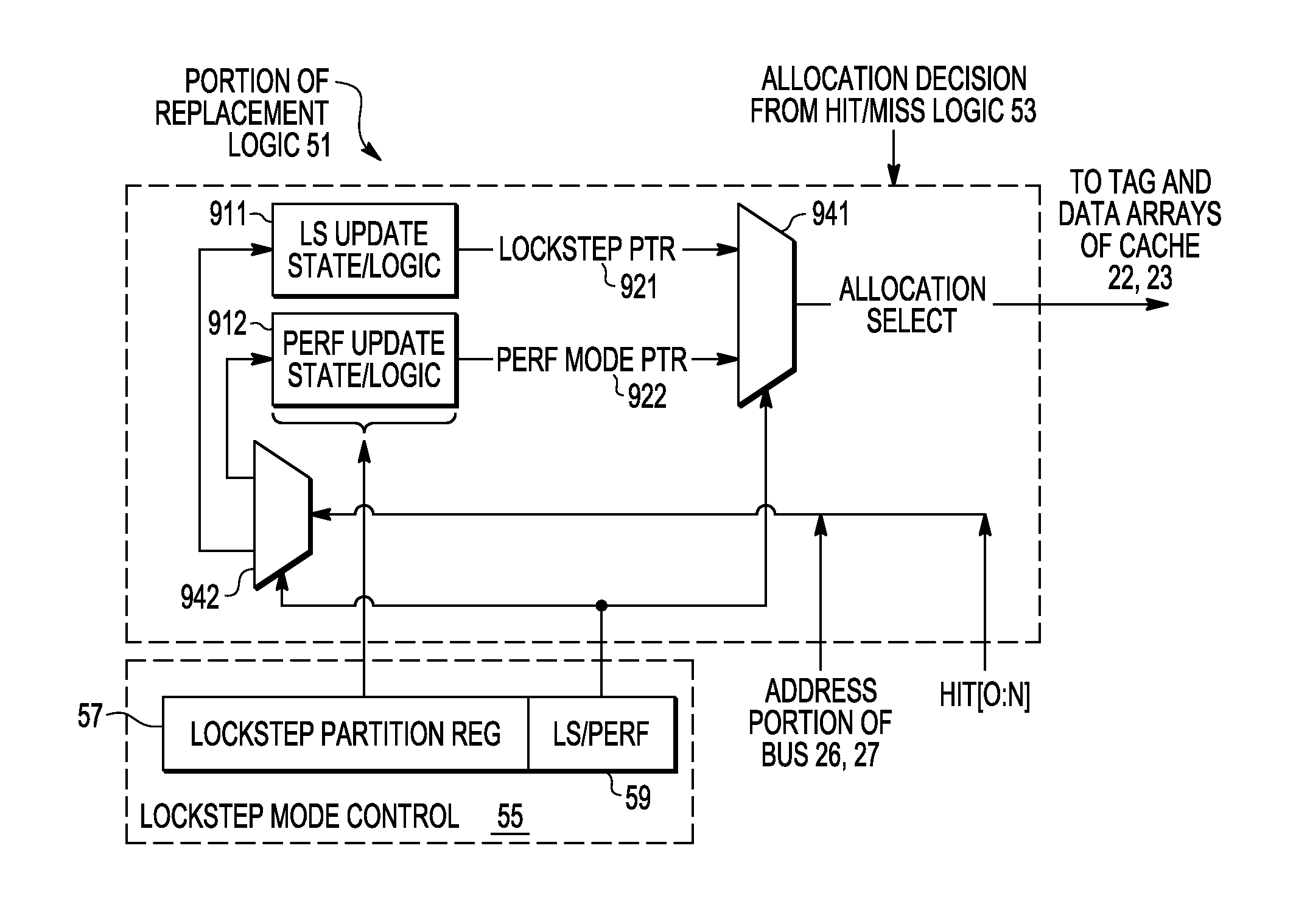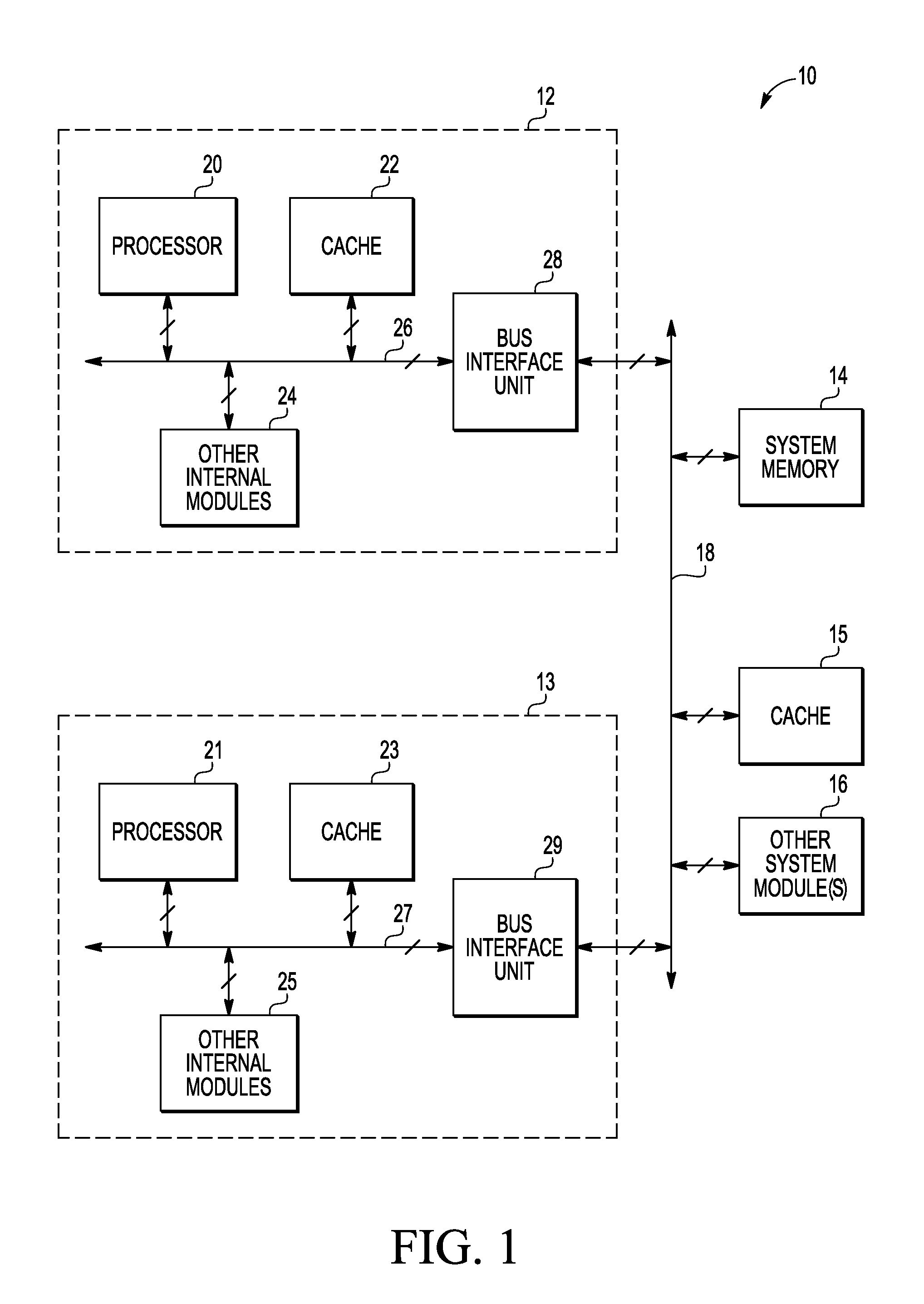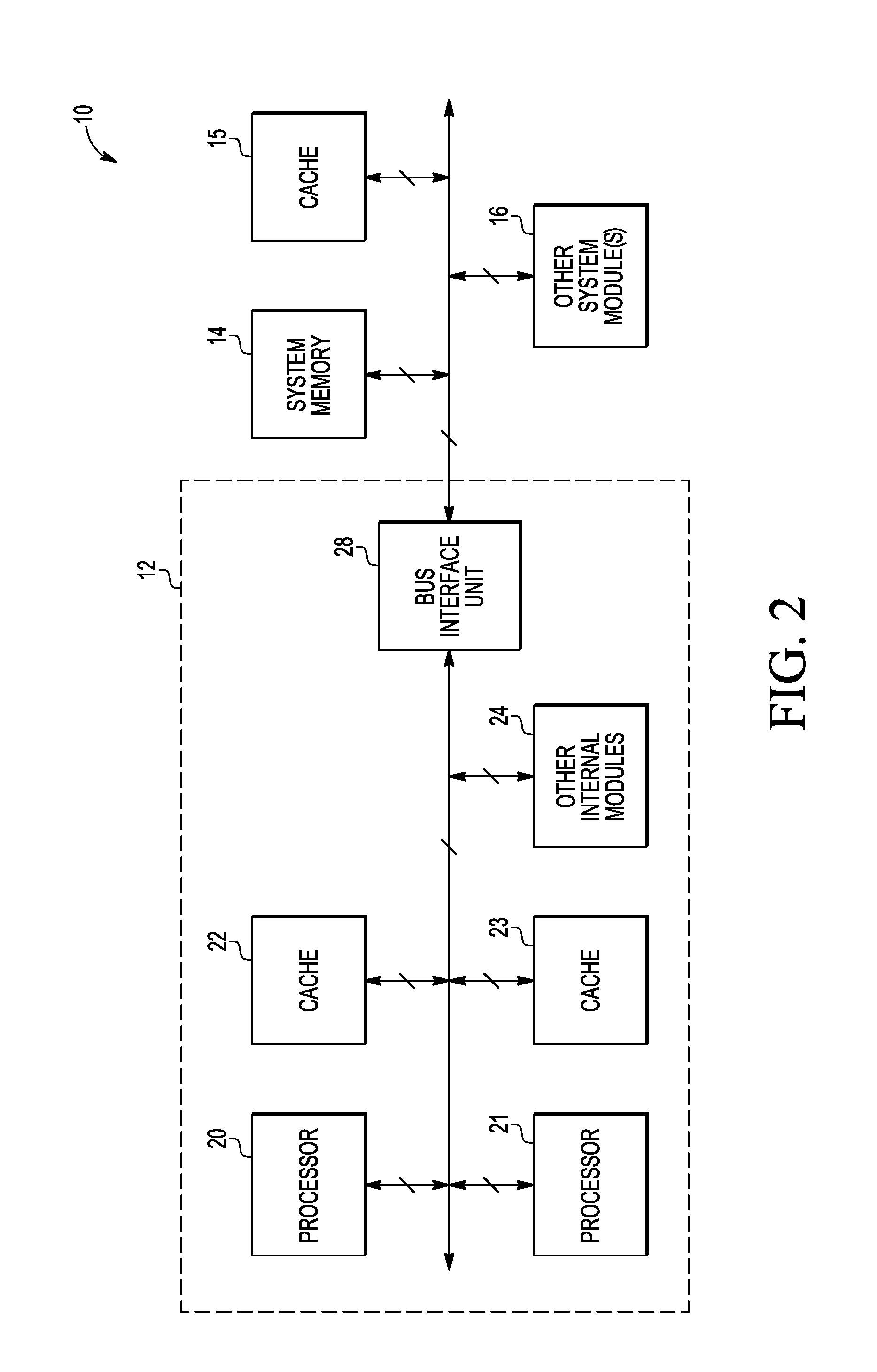Dynamic lockstep cache memory replacement logic
a memory replacement and dynamic lockstep technology, applied in the direction of memory adressing/allocation/relocation, redundant hardware error correction, instruments, etc., can solve the problems of squandering useful processing cycles, burdening non-critical aspects of data processing applications, and expensive redundancy processors
- Summary
- Abstract
- Description
- Claims
- Application Information
AI Technical Summary
Problems solved by technology
Method used
Image
Examples
implementation example
Cache Storage and Implementation Example
[0042]FIG. 3 depicts portions of one example of an N-way, set-associative cache instance such as illustrated in FIGS. 1 and 2 as cache 22 and / or cache 23. The illustrated cache instance includes cache control logic adapted for dynamic lockstep support in accordance with some embodiments of the present invention. Cache 22, 23 includes a tag memory array for multiple ways 42, 44, 46 . . . 48, data memory array for multiple ways 50, 52, 54 . . . 56, and cache control logic 58. In the illustrated portion of cache 22, 23, lockstep mode control 55 (which may be implemented as one or more control registers of, or accessible to, cache control logic 58) codes or otherwise identifies a current operating mode (e.g., lockstep or performance) together with a current way-denominated partition of the associated cache instance into lockstep ways 81 and performance ways 82.
[0043]An access address 40 is received from an address portion of bus 26 or 27 and has a...
PUM
 Login to View More
Login to View More Abstract
Description
Claims
Application Information
 Login to View More
Login to View More - R&D
- Intellectual Property
- Life Sciences
- Materials
- Tech Scout
- Unparalleled Data Quality
- Higher Quality Content
- 60% Fewer Hallucinations
Browse by: Latest US Patents, China's latest patents, Technical Efficacy Thesaurus, Application Domain, Technology Topic, Popular Technical Reports.
© 2025 PatSnap. All rights reserved.Legal|Privacy policy|Modern Slavery Act Transparency Statement|Sitemap|About US| Contact US: help@patsnap.com



